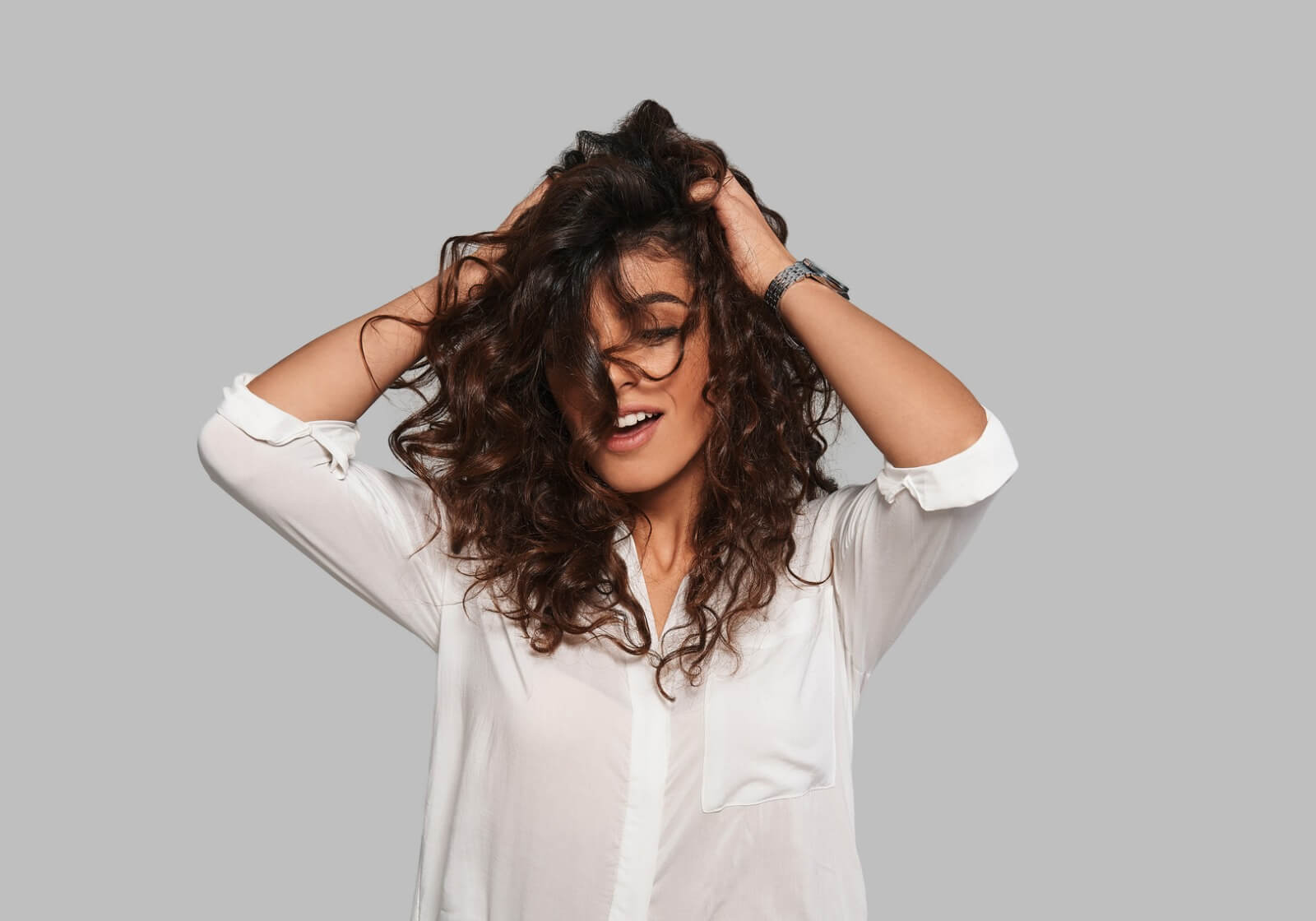Is your black clothing in permanent storage? Are you always sneaking glances at your shoulders, ready to brush away embarrassing white flakes? Is your scalp constantly itchy? Wondering what’s going on? The answer could be dandruff. Or it could be dry scalp. Each is a very different situation. Here’s how to figure out the difference and understand how to treat each one.
Do You Have Dandruff?
There’s a big difference between dandruff and ordinary dry scalp. Dandruff is caused when your body has an inflammatory response to an overabundance of yeast production on the scalp. It can be caused by a condition called seborrheic dermatitis, or by a fungus called malassezia. The latter fungus lives on the scalp normally, but if you have too much of it, it causes the skin cells to multiply more quickly than normal.
Dandruff flakes will stick to the scalp and to your hair brush more readily than the powdery white flakes associated with dry scalp. Dandruff flakes are larger and look oily. Dandruff also causes your scalp to become oily, red, scaly and itchy.
You could also have a condition that is similar to dandruff, such as eczema or psoriasis. Consult your doctor if you are unclear about whether you’re suffering from another scalp condition.
Do You Have Dry Scalp?
If you’ve ruled out all of the above, it’s very possible your scalp is just plain dry. After all, scalp is skin, and like the skin elsewhere on your body, it requires your body’s natural oils (known as sebum) to keep it supple and hydrated. If that sebum production slows, your scalp will feel dry, tight and itchy.
Things that can cause dry scalp include:
- External conditions like cold, dry weather or hot, dry forced indoor heat in the winter.
- Internal dehydration from your diet or lifestyle.
- A build-up of styling products.
- Overindulging in hats or wigs that prevent oxygen from reaching your scalp.
- Stress.
How Do You Get Rid of Dandruff?
If you determine that your unwanted flakes are caused by dandruff, what is the next step? Most medical experts recommend use of an anti-fungal shampoo containing salicylic acid to remove the build-up of dead skin cells or a shampoo containing zinc pyrithione to kill the fungus that causes dandruff. Biolage pros recommend a shampoo with anti-bacterial and calming ingredients like pyrithione zinc and mint leaf. Shampoo your hair frequently to prevent oil from building up.
How Do You Get Rid of Dry Scalp?
Treating dry scalp is a lot like treating dry skin. Unlike dandruff, which is a case of too much oil, dry scalp is a case of not enough oil being produced by the scalp. Some of the most effective strategies include:
- Use gentle shampoos. Harsh formulas can strip away your scalp’s natural oils so look for shampoos with rich, moisturizing, natural-origin ingredients.
- Shampoo less frequently. Not shampooing frequently enough can exacerbate symptoms of dandruff, but too-frequent shampooing can aggravate a dry scalp. Try to skip a few days between shampoos. If you feel that’s too long to go between washings, consider a low-shampoo cleansing conditioner that will freshen your hair and scalp without stripping away your scalp’s natural oils.
- Oil your scalp. Occasional scalp treatments with treatment oils can restore moisture and soothe irritation. Apply a few drops of oil, section by section and massage it into your scalp. (Massage is good for dry scalps too!) To enhance the treatment, go outdoors and sit in the sun, or add heat with a dryer. The heat will aid in product penetration. Your dry hair will benefit too!
- Exfoliate your scalp. Exfoliation does wonders for a dry scalp. You can opt for an actual scrub, or a hair mask formula containing fruit enzymes, sugar or salicylic acid which won’t require tugging or rubbing.
- Drink more water. It sounds simple, but the quickest way to hydrate your skin and scalp is to hydrate your body. That means drinking loads of water—experts recommend at least eight 8-ounce glasses a day. But avoid sodas and alcoholic beverages because they can cause rather than alleviate dehydration.



